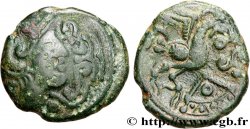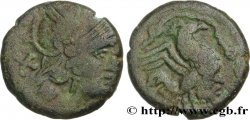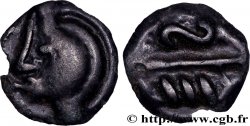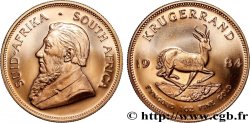正面
正面的文字 ANÉPIGRAPHE.
正面的说明书 Personnage courant à droite, la tête tournée à droite, tenant un torque ; derrière le personnage, un annelet dans un annelet perlé.
背面
背面的文字 ANÉPIGRAPHE.
背面的说明书 Cheval androcéphale à droite entre deux gros globules ornés chacun de trois points posés en triangle.
历史细节
GALLIA BELGICA - BELLOVACI (Area of Beauvais)
(2nd - 1st century BC)
The Bellovaques, people of Belgian Gaul, occupied the current department of Oise. Their neighbors were the Parisii, the Véliocasses, the Calètes, the Ambiens and the Suessions.. Caesar (BG. VII. 59) considers the Bellovaci as the "most valiant people in all of Gaul". Before the Gallic Wars, the Bellovaci had been allies of the Aedui. In 57 BC. -VS. , they were the architects of the uprising of the Belgian peoples, provided a contingent of sixty thousand warriors to the coalition, but were defeated and found refuge on their oppidum of Bratuspantium. In 52 BC. -VS. , they had promised a contingent of ten thousand men for the relief army. They recanted, claiming to fight the Romans alone. Finally, at the prayer of Commius, they gave two thousand men to the coalition. The following year, in 51 BC. -VS. , they took for the last time the head of a revolt of the Belgian people. Corréos, Bellovaque chief, led the sedition in order to fight the Romans with the Atrébates, the Ambiens, the Aulerques Éburovices, the Calètes and the Véliocasses. With the atrebate Commios, Correos met the Roman armies on the borders of the Bellovaci and Suession countries.. Correos was killed, which put an end to hostilities definitively.. The main oppidum of the Bellovaci was Bratuspantium which is difficult to identify with certainty with the Roman city of Caesaromagus (Beauvais). Caesar. (BG. II, 4, 5, 10, 13, 14; V, 46; VII, 59, 75, 90; viii, 6, 7, 12, 14-17, 20-23, 38). Strabo (G. IV, 3-5). Pliny (HN. IV, 106). Ptolemy (G. II, 9). Kruta: 68, 351.










 对产品描述纠错
对产品描述纠错 打印
打印 分享我的选择
分享我的选择 提问
提问 Consign / sell
Consign / sell
 产品介绍
产品介绍










